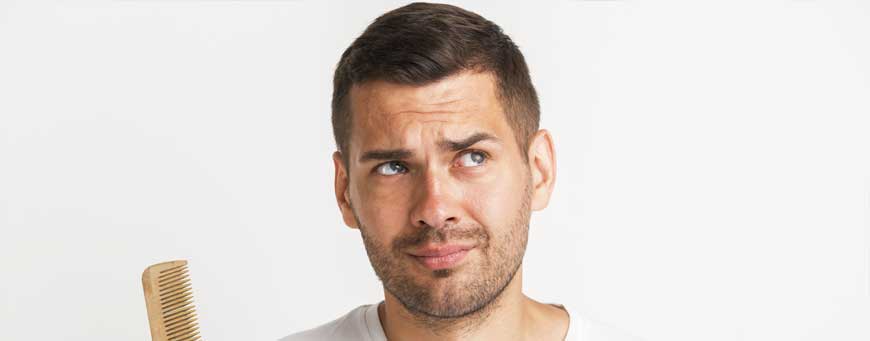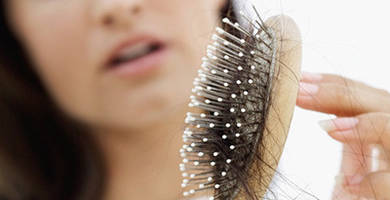Dutasteride vs Finasteride for hair loss: what are its side effects?
By Prof. Dr. Soner Tatlidede 2022-06-22

Dutasteride is one of the best-known hair loss drugs on the market, and possibly one of the most effective. There are multiple studies that confirm that works against some of the symptoms of male pattern baldness; however, few people really know how this medication works, or what are the side effects of Dutasteride.
Many patients looking for a FUE hair transplant come to our hair transplant clinic; usually, they ask us queries related to hair problems and the different remedies available, and some of them want to know how to buy Dutasteride and get more information about this drug, including differences and similarities between Finasteride and Dutasteride. However, before thinking about whether you should order Dutasteride, it is important to know how it works, its risks... And always let it be clear that, like any other medication, it must be prescribed by a professional as part of a treatment under medical supervision.
What is Dutasteride?
Dutasteride is a drug that inhibits the production of the enzyme 5-alpha reductase, which is precisely the one in charge of transforming the hormone testosterone into dihydrotestosterone (DHT), a molecule directly responsible for the loss of hair density in male pattern baldness. Although it's usually prescribed for men, works with female hair loss, too, obtaining promising results.
Although it is possible to buy this drug online or in a pharmacy, and some people usually ask about how to buy Dutasteride through the Internet and without a prescription, this is a high-risk practice and we strongly disapprove of it. It must be a hair health specialist, after evaluating our situation, the pros and cons of using this type of drug, and once a diagnosis of our alopecia is made, the one who should determine if it is convenient to use Dutasteride in our case.
Normally, this medicine - which can be found under several brand names - is supplied by microinjections in the affected area, in sessions about 30 minutes long. In cases of mild alopecia, topical Dutasteride (as a hair lotion) or even in tablets can be prescribed; however, it should be noted that this drug, when administered orally, has many more side effects than if it is applied just on the affected area.
Why is Dutasteride good for hair loss?
Although it was initially developed as a drug against prostate problems, its properties to limit the production of 5-alpha reductase have ended up popularising it as a drug against hair loss, capable of strengthen hair, stop hair loss and increase hair density, slowing down the hair miniaturisation process that leads to its total loss.
As we have already mentioned before, the most recommended way to apply this drug is through Dutasteride mesotherapy: that is, applying localised microinjections, a surgical intervention that can only be performed in hair clinics and only by specialised personnel, and that achieves results in just a few weeks.
If instead of using micro-injections in androgenetic alopecia, the hair specialist decides to prescribe oral Dutasteride, the usual thing is to take it in the form of pills or tablets, usually in doses of 0.5 mg capsules.
Dutasteride vs Finasteride: which one is better?
Many people who have heard of Finasteride, or who are looking for information about what happens before and after using Dutasteride, wonder which of the two drugs will be more effective to stop hair loss.
The truth is that several studies have been done comparing Dutasteride vs. Finasteride, showing that while the latter only inhibits one type of 5-alpha reductase enzyme (that of type II), the former blocks both type I and II. In the end, this means a higher level of efficacy of this drug that reduces the action of androgens on the follicle to stop the generation of DHT, also achieving results in less time, and for a longer period.
In addition, while Dutasteride is used in concentrations no higher than 0.5 milligrams, Finasteride needs to be used in concentrations up to 10 times higher: this is why the latter causes more adverse reactions and side effects, although it is true that with not very significant variations. In any case, it seems clear that Dutasteride offers more advantages, both considering the results or if we take into account the possible risks.
Dutasteride and its side effects
There are several side effects that may cause; this medication should not be given to children, pregnant women, or patients with liver disease, while its use in men before pregnancy is also not recommended, since this drug is excreted through semen and can cause serious damages to the developing foetus.
In general, the most common side effects in men are impotence, depression, testicular pain, loss of sex drive, or ejaculation disorders, although it should be noted that these problems are only detected in a small percentage of patients, not in a general way.
Also, some people wonder whether Dutasteride makes you fat: it should be noted that it is not a drug that increases weight by itself; however, since it can reduce testosterone production, Dutasteride can affect muscle growth.
Should I buy Dutasteride for hair loss?
Offers clear and proven results by slowing hair loss and strengthening existing hair, being especially effective during the early stages of pattern baldness (the most common type of alopecia), especially if Dutasteride hair mesotherapy is combined with a Platelet Rich Plasma (PRP) treatment.
However, it must be emphasised that is not effective in cases of advanced alopecia, where the only real and lasting solution is a hair transplant, as long as it is performed by experienced professionals. Clinicana is the best hair transplant clinic, and we are specialised in all kinds of hair treatments: request your free consultation, and ask us for a free, no obligation estimate for your treatment. We are here to help you!








